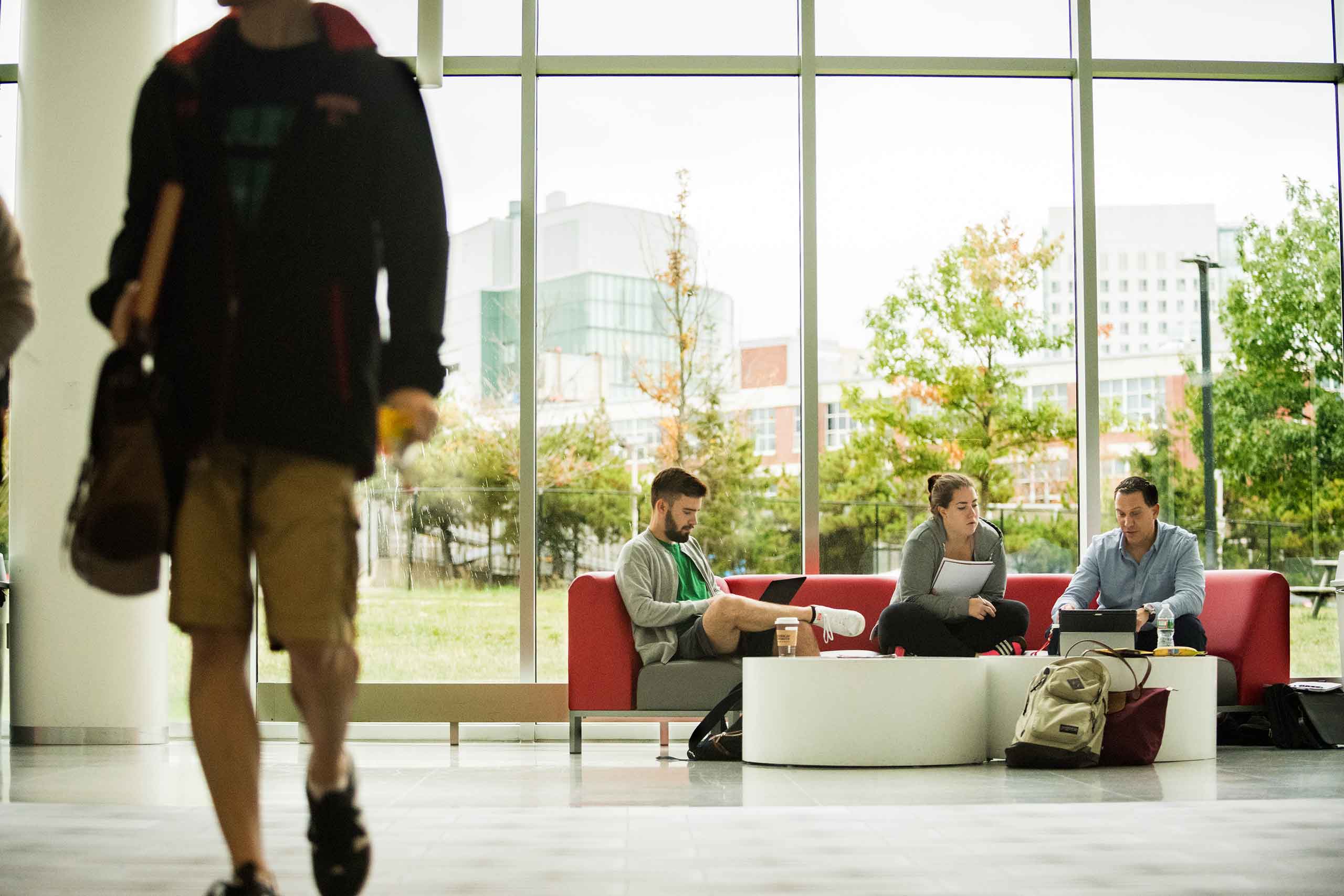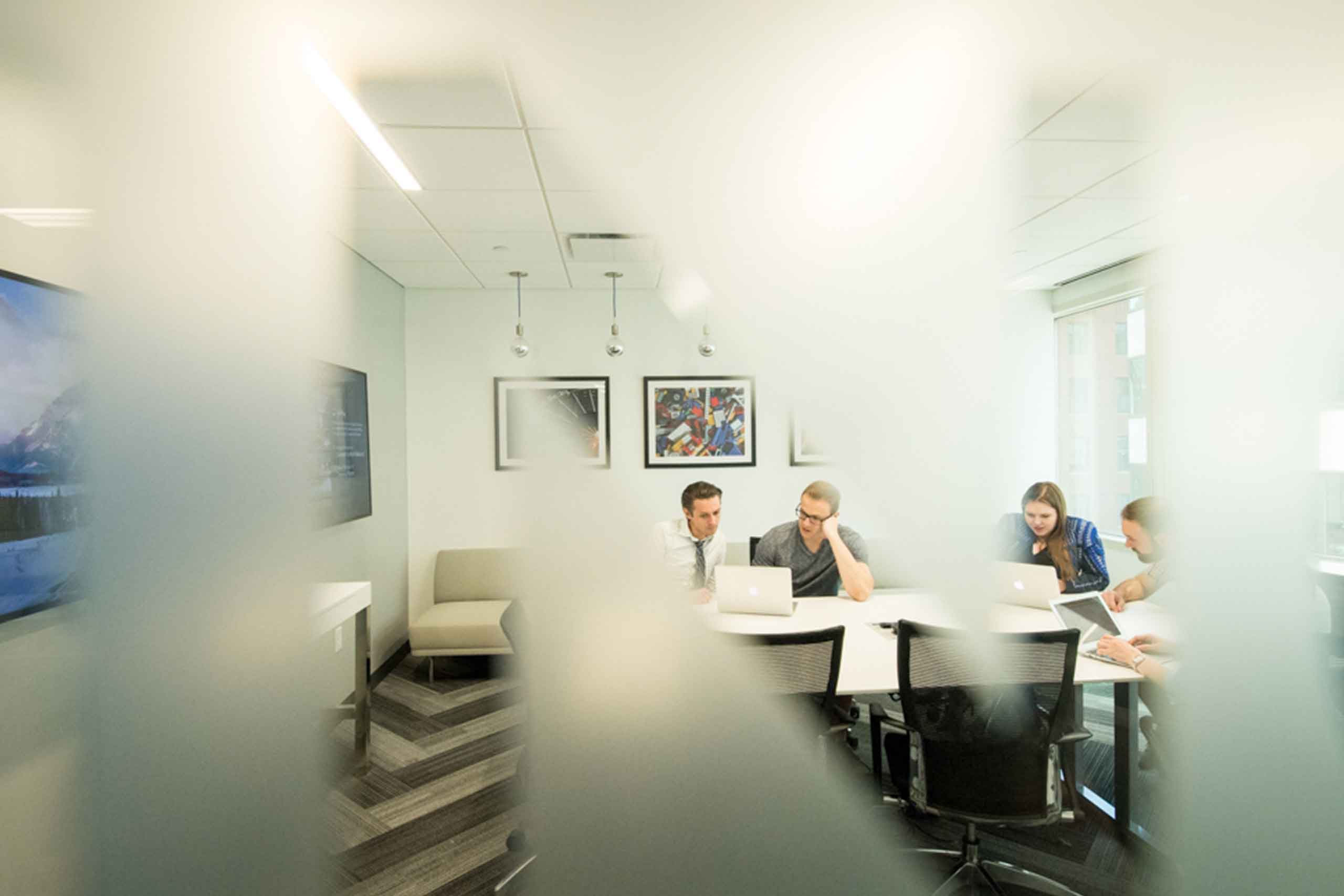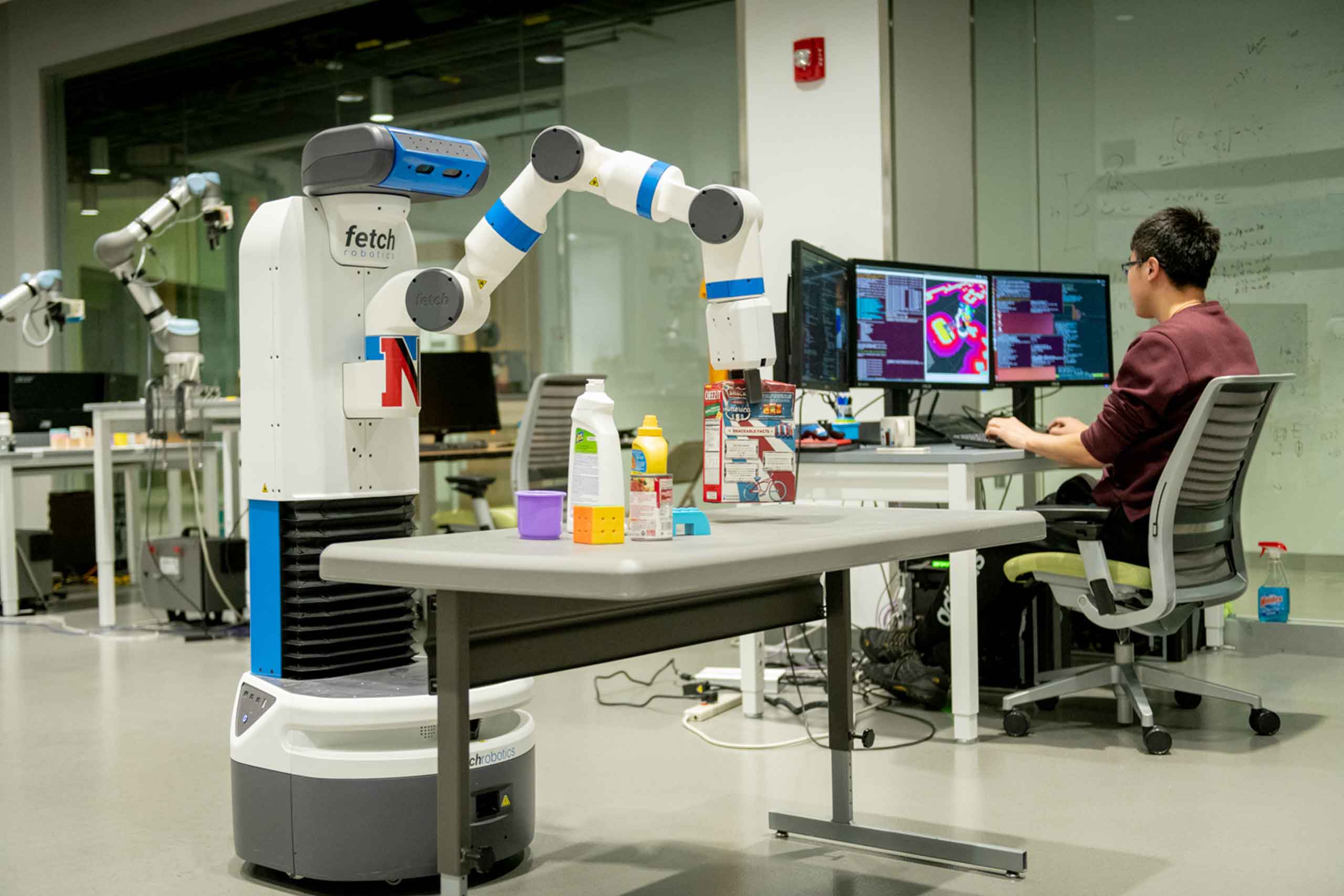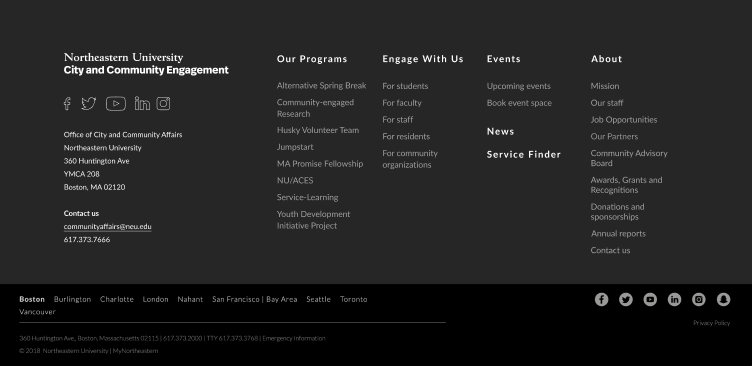

Be it computers or people, NASA needs networks. For co-op Owen Seltzer, those networks are the mission.

Tue 10.03.23 / Matty Wasserman

Be it computers or people, NASA needs networks. For co-op Owen Seltzer, those networks are the mission.
Tue 10.03.23 / Matty Wasserman
Tue 10.03.23 / Matty Wasserman
Tue 10.03.23 / Matty Wasserman


Be it computers or people, NASA needs networks. For co-op Owen Seltzer, those networks are the mission.

Tue 10.03.23 / Matty Wasserman

Be it computers or people, NASA needs networks. For co-op Owen Seltzer, those networks are the mission.
Tue 10.03.23 / Matty Wasserman
Tue 10.03.23 / Matty Wasserman
Tue 10.03.23 / Matty Wasserman
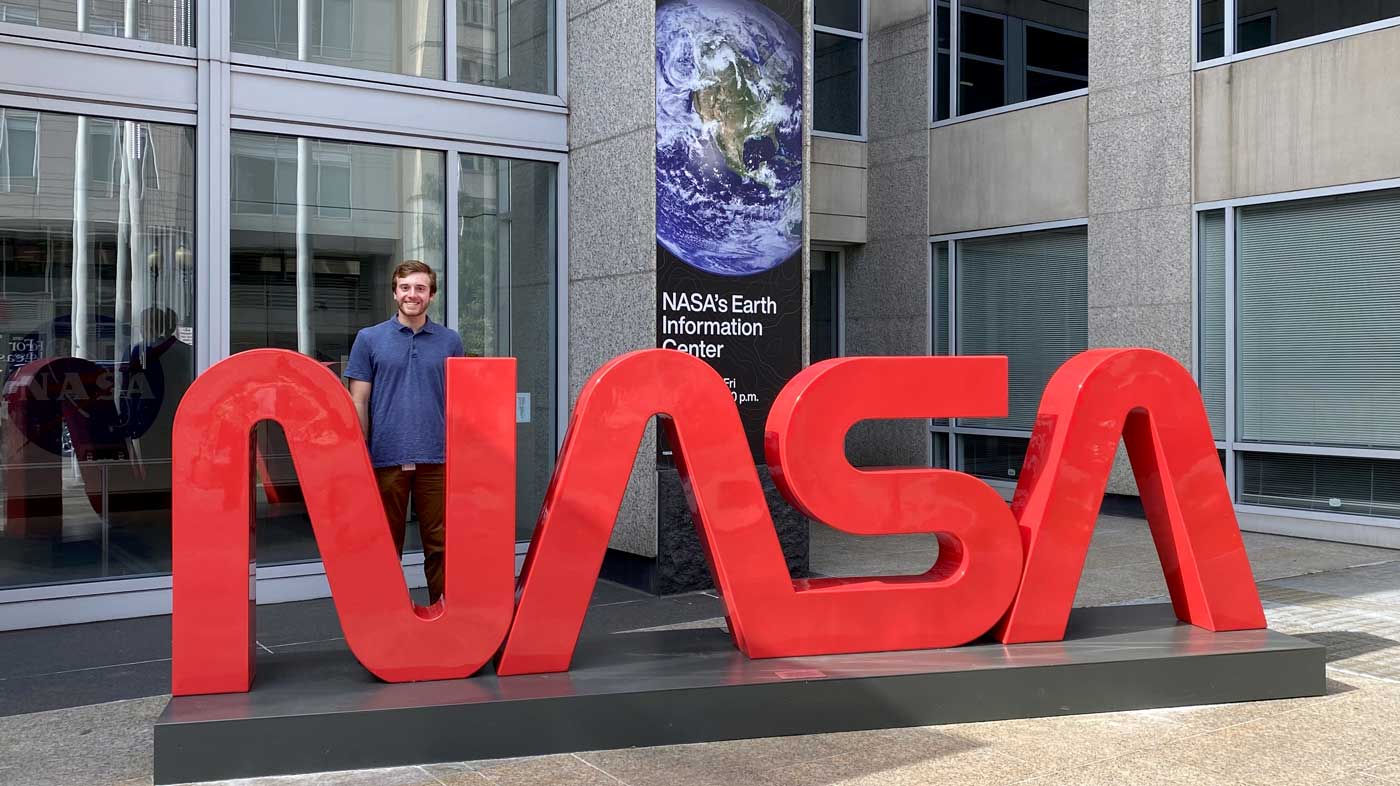 Photo credit: NASA SCaN on X
Photo credit: NASA SCaN on X
Until the day he was accepted to an internship program at NASA, Owen Seltzer never envisioned himself working in the space industry.
Seltzer, a fourth-year cybersecurity major at Khoury College, has long held a passion for technology and systems security. But his primary reason for applying to NASA was to fulfill requirements for the government-sponsored cybersecurity scholarship he earned last spring.
Now, after thriving during his 10-week summer cybersecurity internship at NASA’s Space Communications and Navigation (SCaN) department in Washington, D.C., Seltzer has extended his role into a co-op that will run through the end of the year. In this role, he works jointly between the cybersecurity office and national network operations as a fully integrated team member, traveling to NASA offices around the country to conduct security assessments and other projects.
“I never had any interest or thought of working at NASA or the space industry before. I mostly was just throwing some applications out to anything that had open roles,” Seltzer said. “But my experience over the summer was so great, and now in this bigger role, I get to see the impact and scope of the work we can do here. It’s a really unique opportunity.”
Seltzer is one of 13 Khoury students enrolled in the prestigious Cybercorps Scholarship for Service program (SFS), which is run nationwide through the U.S. Office of Personnel Management and is coordinated at Northeastern by Guevara Noubir, Khoury College’s executive director of cybersecurity programs. Through grants from the National Science Foundation, SFS fully funds cybersecurity students’ final two-to-three years of undergraduate or graduate studies. In exchange, recipients complete a summer internship for a U.S. government agency, and upon graduation, must work for the government for a period equal to the length of the scholarship.
RELATED: From scholarships to cross-university classes, VICEROY preps Khoury students for cyber defense
At SCaN, which is responsible for satellites, tracking, and communications between Earth and space, Seltzer works on a five-person network operations and integrity team. The unit manages cybersecurity compliance and risk for the computer systems that operate SCaN’s complex web of networks.
During the summer, Seltzer’s day-to-day role involved some typical intern programming — such as professional development training — along with some decidedly less typical items, including cybersecurity policy meetings and meet-and-greets with astronauts. But his primary work was a single summer-long project; he would inspect different networks and cyber programs, determine issues and areas for improvement, and then, using a holistic view of the department, suggest ways to problem-solve more efficiently.
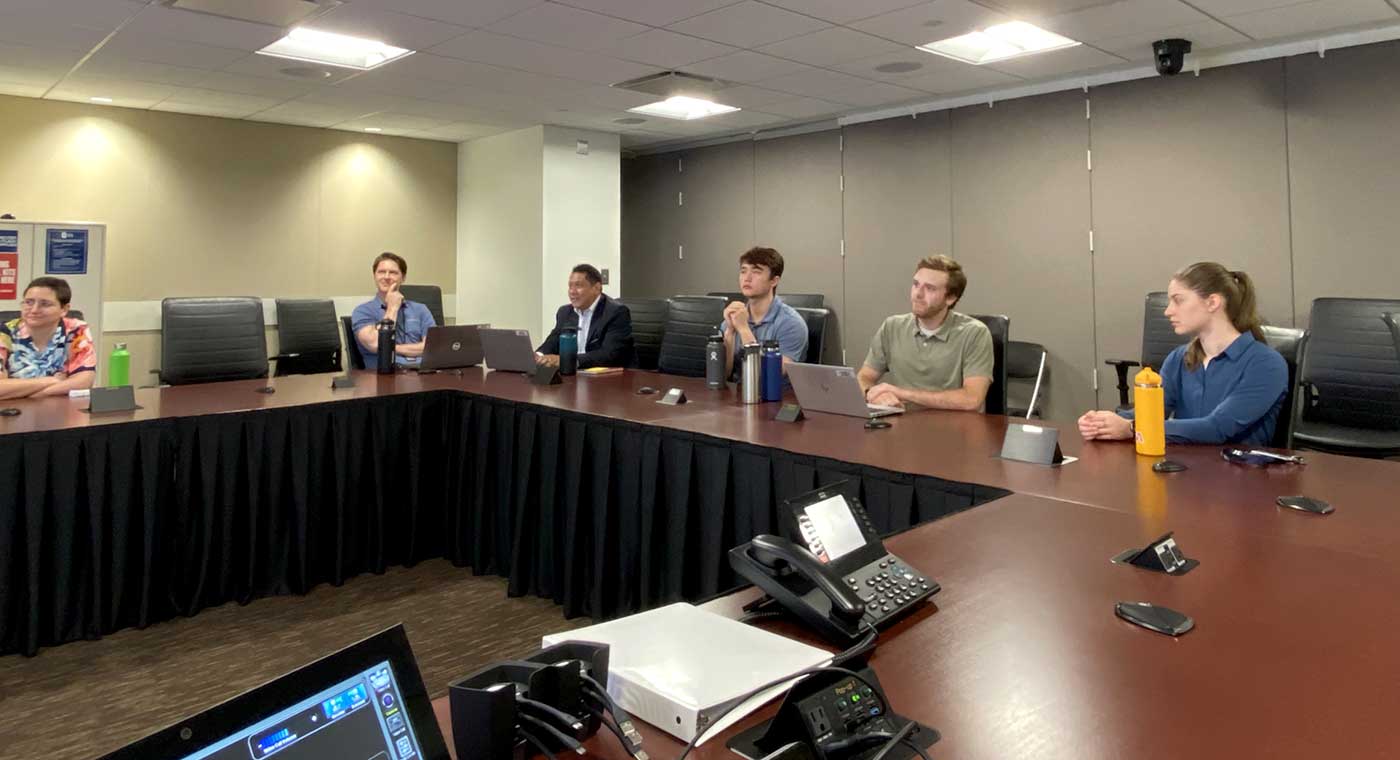 Photo credit: NASA SCaN on X
Photo credit: NASA SCaN on X
“I was essentially trying to find network commonalities and shared problems,” Seltzer said. “I would say, ‘I found this person is working on fixing a very similar problem to this other person, who is doing an entirely different project. We can get them to work together.’ Or maybe I’d suggest we appeal for more money to try and knock a problem out, because it was pervasive across multiple networks.”
At the end of his project, he presented his findings to his team and to the cybersecurity team for Artemis — a cutting-edge, NASA-led, multinational project which plans to send astronauts back to the moon.
“Getting to present to Artemis was really cool, because I’m sitting up there in front of a room of pretty powerful people and they’re listening to my ideas,” Seltzer said. “It really helped validate the work.”
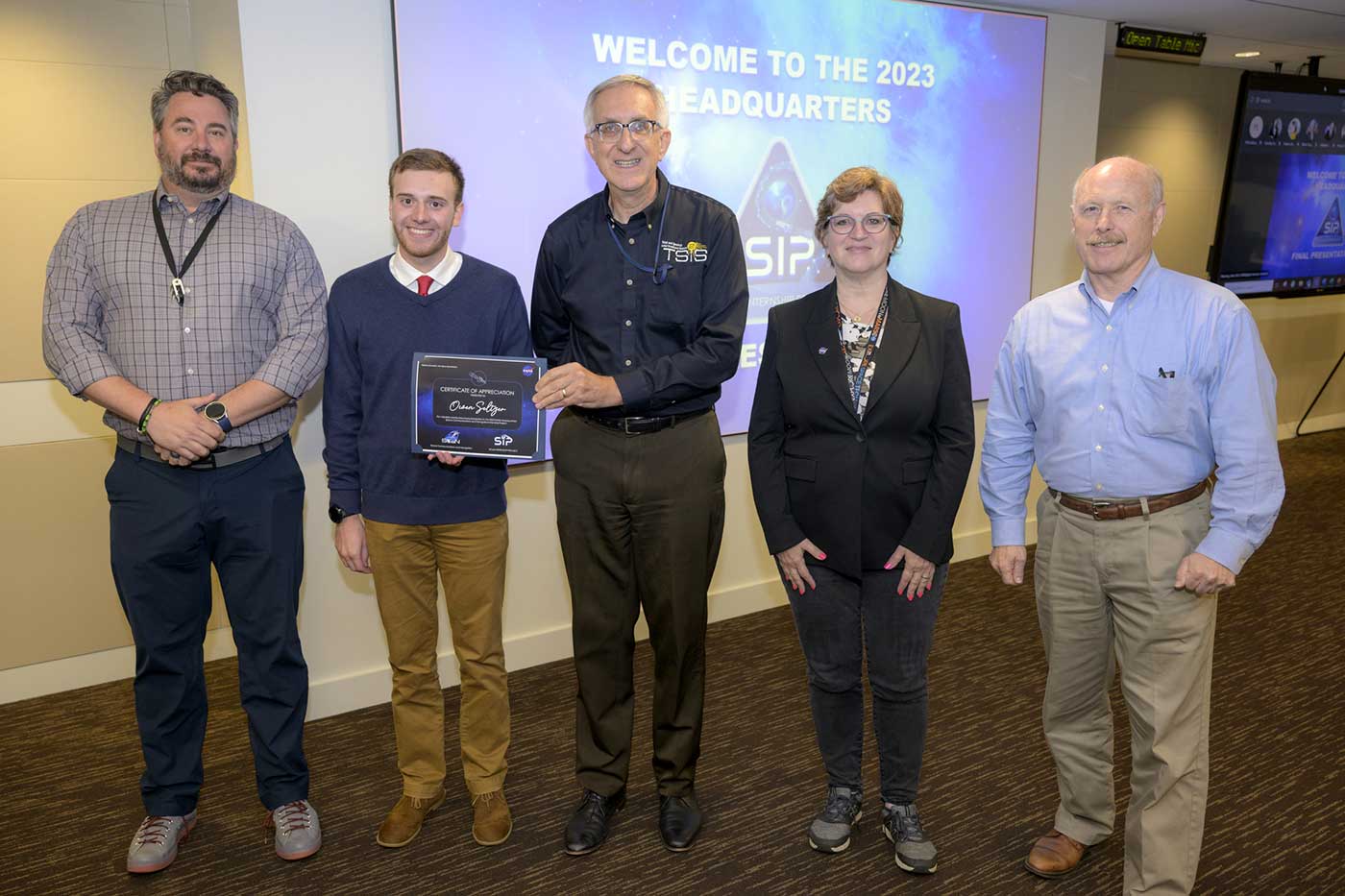
As he transitions from his summer internship to his fall co-op, Seltzer has also begun reviewing cybersecurity systems at other NASA branches across the country — a common procedure NASA uses to ensure checks and balances. In late August, he traveled to the Jet Propulsion Lab in Pasadena, California to help assess their internal programs, and he hopes to travel to NASA’s launch site in Cape Canaveral, Florida soon for a similar task.
“We’re looking at computer systems and asking, ‘Do they follow all these different regulations for cybersecurity?’ That’s everything from physical security, like ‘Are they behind a locked door,’ all the way to, ‘Are they using encryption and the disk properly for anti-virus protection,’” Seltzer said. “Seeing the operations at different sites is really interesting to learn from.
While Seltzer is not dead-set on a career in space cybersecurity, he’s now weighing whether to pursue a full-time role with NASA after his graduation. But even if he works at another government agency, the support of SFS and the diverse array of responsibilities and exposure he received during his internship will serve as a major boost.
 Photo credit: NASA SCaN on X
Photo credit: NASA SCaN on X
Until the day he was accepted to an internship program at NASA, Owen Seltzer never envisioned himself working in the space industry.
Seltzer, a fourth-year cybersecurity major at Khoury College, has long held a passion for technology and systems security. But his primary reason for applying to NASA was to fulfill requirements for the government-sponsored cybersecurity scholarship he earned last spring.
Now, after thriving during his 10-week summer cybersecurity internship at NASA’s Space Communications and Navigation (SCaN) department in Washington, D.C., Seltzer has extended his role into a co-op that will run through the end of the year. In this role, he works jointly between the cybersecurity office and national network operations as a fully integrated team member, traveling to NASA offices around the country to conduct security assessments and other projects.
“I never had any interest or thought of working at NASA or the space industry before. I mostly was just throwing some applications out to anything that had open roles,” Seltzer said. “But my experience over the summer was so great, and now in this bigger role, I get to see the impact and scope of the work we can do here. It’s a really unique opportunity.”
Seltzer is one of 13 Khoury students enrolled in the prestigious Cybercorps Scholarship for Service program (SFS), which is run nationwide through the U.S. Office of Personnel Management and is coordinated at Northeastern by Guevara Noubir, Khoury College’s executive director of cybersecurity programs. Through grants from the National Science Foundation, SFS fully funds cybersecurity students’ final two-to-three years of undergraduate or graduate studies. In exchange, recipients complete a summer internship for a U.S. government agency, and upon graduation, must work for the government for a period equal to the length of the scholarship.
RELATED: From scholarships to cross-university classes, VICEROY preps Khoury students for cyber defense
At SCaN, which is responsible for satellites, tracking, and communications between Earth and space, Seltzer works on a five-person network operations and integrity team. The unit manages cybersecurity compliance and risk for the computer systems that operate SCaN’s complex web of networks.
During the summer, Seltzer’s day-to-day role involved some typical intern programming — such as professional development training — along with some decidedly less typical items, including cybersecurity policy meetings and meet-and-greets with astronauts. But his primary work was a single summer-long project; he would inspect different networks and cyber programs, determine issues and areas for improvement, and then, using a holistic view of the department, suggest ways to problem-solve more efficiently.
 Photo credit: NASA SCaN on X
Photo credit: NASA SCaN on X
“I was essentially trying to find network commonalities and shared problems,” Seltzer said. “I would say, ‘I found this person is working on fixing a very similar problem to this other person, who is doing an entirely different project. We can get them to work together.’ Or maybe I’d suggest we appeal for more money to try and knock a problem out, because it was pervasive across multiple networks.”
At the end of his project, he presented his findings to his team and to the cybersecurity team for Artemis — a cutting-edge, NASA-led, multinational project which plans to send astronauts back to the moon.
“Getting to present to Artemis was really cool, because I’m sitting up there in front of a room of pretty powerful people and they’re listening to my ideas,” Seltzer said. “It really helped validate the work.”

As he transitions from his summer internship to his fall co-op, Seltzer has also begun reviewing cybersecurity systems at other NASA branches across the country — a common procedure NASA uses to ensure checks and balances. In late August, he traveled to the Jet Propulsion Lab in Pasadena, California to help assess their internal programs, and he hopes to travel to NASA’s launch site in Cape Canaveral, Florida soon for a similar task.
“We’re looking at computer systems and asking, ‘Do they follow all these different regulations for cybersecurity?’ That’s everything from physical security, like ‘Are they behind a locked door,’ all the way to, ‘Are they using encryption and the disk properly for anti-virus protection,’” Seltzer said. “Seeing the operations at different sites is really interesting to learn from.
While Seltzer is not dead-set on a career in space cybersecurity, he’s now weighing whether to pursue a full-time role with NASA after his graduation. But even if he works at another government agency, the support of SFS and the diverse array of responsibilities and exposure he received during his internship will serve as a major boost.
 Photo credit: NASA SCaN on X
Photo credit: NASA SCaN on X
Until the day he was accepted to an internship program at NASA, Owen Seltzer never envisioned himself working in the space industry.
Seltzer, a fourth-year cybersecurity major at Khoury College, has long held a passion for technology and systems security. But his primary reason for applying to NASA was to fulfill requirements for the government-sponsored cybersecurity scholarship he earned last spring.
Now, after thriving during his 10-week summer cybersecurity internship at NASA’s Space Communications and Navigation (SCaN) department in Washington, D.C., Seltzer has extended his role into a co-op that will run through the end of the year. In this role, he works jointly between the cybersecurity office and national network operations as a fully integrated team member, traveling to NASA offices around the country to conduct security assessments and other projects.
“I never had any interest or thought of working at NASA or the space industry before. I mostly was just throwing some applications out to anything that had open roles,” Seltzer said. “But my experience over the summer was so great, and now in this bigger role, I get to see the impact and scope of the work we can do here. It’s a really unique opportunity.”
Seltzer is one of 13 Khoury students enrolled in the prestigious Cybercorps Scholarship for Service program (SFS), which is run nationwide through the U.S. Office of Personnel Management and is coordinated at Northeastern by Guevara Noubir, Khoury College’s executive director of cybersecurity programs. Through grants from the National Science Foundation, SFS fully funds cybersecurity students’ final two-to-three years of undergraduate or graduate studies. In exchange, recipients complete a summer internship for a U.S. government agency, and upon graduation, must work for the government for a period equal to the length of the scholarship.
RELATED: From scholarships to cross-university classes, VICEROY preps Khoury students for cyber defense
At SCaN, which is responsible for satellites, tracking, and communications between Earth and space, Seltzer works on a five-person network operations and integrity team. The unit manages cybersecurity compliance and risk for the computer systems that operate SCaN’s complex web of networks.
During the summer, Seltzer’s day-to-day role involved some typical intern programming — such as professional development training — along with some decidedly less typical items, including cybersecurity policy meetings and meet-and-greets with astronauts. But his primary work was a single summer-long project; he would inspect different networks and cyber programs, determine issues and areas for improvement, and then, using a holistic view of the department, suggest ways to problem-solve more efficiently.
 Photo credit: NASA SCaN on X
Photo credit: NASA SCaN on X
“I was essentially trying to find network commonalities and shared problems,” Seltzer said. “I would say, ‘I found this person is working on fixing a very similar problem to this other person, who is doing an entirely different project. We can get them to work together.’ Or maybe I’d suggest we appeal for more money to try and knock a problem out, because it was pervasive across multiple networks.”
At the end of his project, he presented his findings to his team and to the cybersecurity team for Artemis — a cutting-edge, NASA-led, multinational project which plans to send astronauts back to the moon.
“Getting to present to Artemis was really cool, because I’m sitting up there in front of a room of pretty powerful people and they’re listening to my ideas,” Seltzer said. “It really helped validate the work.”

As he transitions from his summer internship to his fall co-op, Seltzer has also begun reviewing cybersecurity systems at other NASA branches across the country — a common procedure NASA uses to ensure checks and balances. In late August, he traveled to the Jet Propulsion Lab in Pasadena, California to help assess their internal programs, and he hopes to travel to NASA’s launch site in Cape Canaveral, Florida soon for a similar task.
“We’re looking at computer systems and asking, ‘Do they follow all these different regulations for cybersecurity?’ That’s everything from physical security, like ‘Are they behind a locked door,’ all the way to, ‘Are they using encryption and the disk properly for anti-virus protection,’” Seltzer said. “Seeing the operations at different sites is really interesting to learn from.
While Seltzer is not dead-set on a career in space cybersecurity, he’s now weighing whether to pursue a full-time role with NASA after his graduation. But even if he works at another government agency, the support of SFS and the diverse array of responsibilities and exposure he received during his internship will serve as a major boost.
 Photo credit: NASA SCaN on X
Photo credit: NASA SCaN on X
Until the day he was accepted to an internship program at NASA, Owen Seltzer never envisioned himself working in the space industry.
Seltzer, a fourth-year cybersecurity major at Khoury College, has long held a passion for technology and systems security. But his primary reason for applying to NASA was to fulfill requirements for the government-sponsored cybersecurity scholarship he earned last spring.
Now, after thriving during his 10-week summer cybersecurity internship at NASA’s Space Communications and Navigation (SCaN) department in Washington, D.C., Seltzer has extended his role into a co-op that will run through the end of the year. In this role, he works jointly between the cybersecurity office and national network operations as a fully integrated team member, traveling to NASA offices around the country to conduct security assessments and other projects.
“I never had any interest or thought of working at NASA or the space industry before. I mostly was just throwing some applications out to anything that had open roles,” Seltzer said. “But my experience over the summer was so great, and now in this bigger role, I get to see the impact and scope of the work we can do here. It’s a really unique opportunity.”
Seltzer is one of 13 Khoury students enrolled in the prestigious Cybercorps Scholarship for Service program (SFS), which is run nationwide through the U.S. Office of Personnel Management and is coordinated at Northeastern by Guevara Noubir, Khoury College’s executive director of cybersecurity programs. Through grants from the National Science Foundation, SFS fully funds cybersecurity students’ final two-to-three years of undergraduate or graduate studies. In exchange, recipients complete a summer internship for a U.S. government agency, and upon graduation, must work for the government for a period equal to the length of the scholarship.
RELATED: From scholarships to cross-university classes, VICEROY preps Khoury students for cyber defense
At SCaN, which is responsible for satellites, tracking, and communications between Earth and space, Seltzer works on a five-person network operations and integrity team. The unit manages cybersecurity compliance and risk for the computer systems that operate SCaN’s complex web of networks.
During the summer, Seltzer’s day-to-day role involved some typical intern programming — such as professional development training — along with some decidedly less typical items, including cybersecurity policy meetings and meet-and-greets with astronauts. But his primary work was a single summer-long project; he would inspect different networks and cyber programs, determine issues and areas for improvement, and then, using a holistic view of the department, suggest ways to problem-solve more efficiently.
 Photo credit: NASA SCaN on X
Photo credit: NASA SCaN on X
“I was essentially trying to find network commonalities and shared problems,” Seltzer said. “I would say, ‘I found this person is working on fixing a very similar problem to this other person, who is doing an entirely different project. We can get them to work together.’ Or maybe I’d suggest we appeal for more money to try and knock a problem out, because it was pervasive across multiple networks.”
At the end of his project, he presented his findings to his team and to the cybersecurity team for Artemis — a cutting-edge, NASA-led, multinational project which plans to send astronauts back to the moon.
“Getting to present to Artemis was really cool, because I’m sitting up there in front of a room of pretty powerful people and they’re listening to my ideas,” Seltzer said. “It really helped validate the work.”

As he transitions from his summer internship to his fall co-op, Seltzer has also begun reviewing cybersecurity systems at other NASA branches across the country — a common procedure NASA uses to ensure checks and balances. In late August, he traveled to the Jet Propulsion Lab in Pasadena, California to help assess their internal programs, and he hopes to travel to NASA’s launch site in Cape Canaveral, Florida soon for a similar task.
“We’re looking at computer systems and asking, ‘Do they follow all these different regulations for cybersecurity?’ That’s everything from physical security, like ‘Are they behind a locked door,’ all the way to, ‘Are they using encryption and the disk properly for anti-virus protection,’” Seltzer said. “Seeing the operations at different sites is really interesting to learn from.
While Seltzer is not dead-set on a career in space cybersecurity, he’s now weighing whether to pursue a full-time role with NASA after his graduation. But even if he works at another government agency, the support of SFS and the diverse array of responsibilities and exposure he received during his internship will serve as a major boost.

